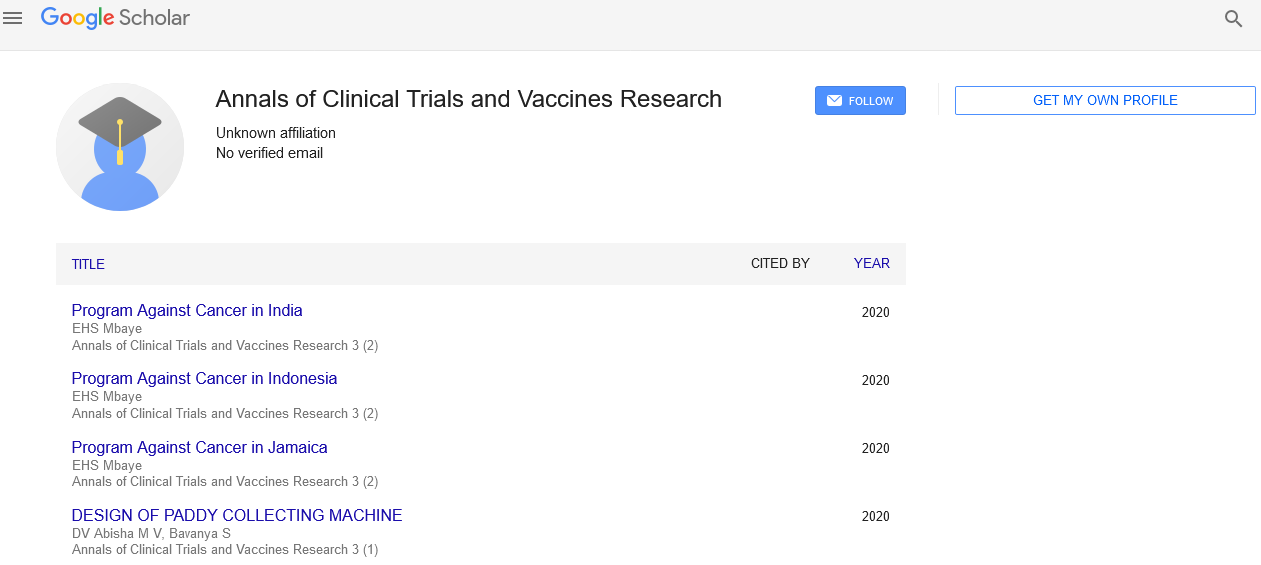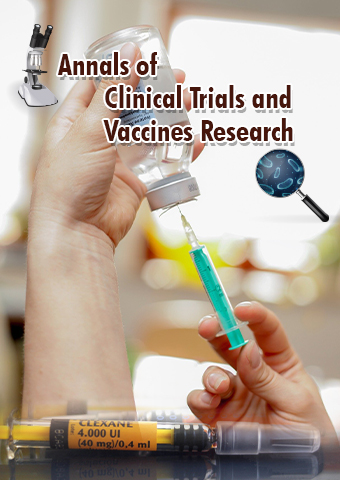Perspective - Annals of Clinical Trials and Vaccines Research (2024) Volume 14, Issue 2
Understanding Hepatocellular Carcinoma: Causes, Symptoms, Diagnosis and Treatment
- Corresponding Author:
- Vericelli Saviett
Department of ENT,
University of Maroa,
Maroa,
Venezuela
E-mail: Veric@gmail.com
Received: 26-Mar-2024, Manuscript No. ACTVR-24-130534; Editor assigned: 29-Mar-2024, Pre QC No. ACTVR-24-130534 (PQ); Reviewed: 12-Apr-2024, QC No. ACTVR-24-130534; Revised: 23-Apr-2024, Manuscript No. ACTVR-24-130534 (R); Published: 30-Apr-2024, DOI: 10.37532/ ACTVR.2024.14(2).216-217
Introduction
Hepatocellular Carcinoma (HCC) is the most common type of primary liver cancer, accounting for approximately 75%-85% of all liver cancer cases worldwide. It arises from hepatocytes, the main type of liver cell, and typically occurs in the setting of chronic liver disease and cirrhosis. HCC poses a significant health burden globally, with its incidence on the rise in many parts of the world. Understanding the causes, symptoms, diagnosis, and treatment options for HCC is crucial for effective management and improved outcomes for patients.
Description
Causes and risk factors
Chronic liver inflammation and damage play a central role in the development of hepatocellular carcinoma. The primary risk factors associated with HCC include:
Chronic viral hepatitis: Chronic infection with Hepatitis B Virus (HBV) or Hepatitis C Virus (HCV) significantly increases the risk of developing HCC. These viruses can cause persistent liver inflammation, leading to liver cirrhosis and ultimately hepatocellular carcinoma.
Liver cirrhosis: Cirrhosis, a late stage of scarring of the liver, is a major risk factor for HCC. Cirrhosis can result from chronic alcohol abuse, viral hepatitis, non-alcoholic fatty liver disease (NAFLD), and other causes of liver damage.
Alcohol consumption: Excessive and prolonged alcohol consumption can lead to liver cirrhosis, increasing the risk of HCC development.
Non-Alcoholic Fatty Liver Disease (NAFLD) and Non-Alcoholic Steatohepatitis (NASH): Obesity, diabetes, and metabolic syndrome are associated with the development of NAFLD and NASH, which can progress to cirrhosis and increase the risk of HCC.
Aflatoxin exposure: Aflatoxins are toxins produced by certain molds that can contaminate food, particularly grains and nuts. Chronic exposure to aflatoxins is a significant risk factor for HCC, particularly in regions where food contamination is prevalent.
Genetic factors: Inherited liver diseases such as hemochromatosis, alpha-1 antitrypsin deficiency, and Wilson’s disease can predispose individuals to HCC.
Symptoms
Hepatocellular carcinoma often remains asymptomatic in its early stages, making early detection challenging. As the tumor progresses, individuals may experience the following symptoms:
Abdominal pain or discomfort: Pain or tenderness in the upper abdomen, particularly on the right side, is common.
Unintended weight loss: Loss of appetite and unintentional weight loss are frequent symptoms of advanced HCC.
Jaundice: Yellowing of the skin and eyes occurs when liver function is impaired, leading to elevated levels of bilirubin in the blood.
Fatigue: Generalized weakness and fatigue are common as the cancer progresses and liver function declines.
Abdominal swelling: Accumulation of fluid in the abdomen (ascites) can lead to abdominal swelling and discomfort.
Nausea and vomiting: These symptoms may occur as a result of liver dysfunction and elevated toxin levels in the blood.
Diagnosis
Early diagnosis of hepatocellular carcinoma is essential for improving treatment outcomes and prognosis. Diagnostic tests and procedures commonly used in the evaluation of HCC include:
Imaging studies: Techniques such as ultrasound, Computed Tomography (CT) scans, and Magnetic Resonance Imaging (MRI) are used to visualize the liver and detect any suspicious lesions.
Blood tests: Blood tests may reveal elevated levels of certain liver enzymes and tumor markers such as Alpha-Fetoprotein (AFP), which can indicate the presence of HCC.
Liver biopsy: A tissue sample from the liver is obtained and examined under a microscope to confirm the diagnosis of HCC and provide information about the tumor’s characteristics.
Scoring systems: Scoring systems such as the Barcelona Clinic Liver Cancer (BCLC) staging system and the Child-Pugh classification are used to assess the severity of liver disease and guide treatment decisions.
Treatment
The choice of treatment for hepatocellular carcinoma depends on several factors, including the stage of the cancer, the underlying liver function, and the patient’s overall health. Treatment options may include:
Surgical resection: Surgical removal of the tumor may be considered for patients with early-stage HCC and sufficient liver function. This approach offers the possibility of a cure for localized disease.
Liver transplantation: Liver transplantation may be recommended for patients with advanced HCC and cirrhosis who meet certain criteria. Transplantation offers the best chance of long-term survival for eligible patients.
Locoregional therapies: Techniques such as Radiofrequency Ablation (RFA), Transarterial Chemoembolization (TACE), and Radioembolization (TARE) are used to destroy or shrink tumors in the liver while preserving healthy tissue.
Systemic therapy: Targeted therapies and immunotherapy drugs may be used to treat advanced HCC that cannot be effectively treated with surgery or locoregional therapies.
Palliative care: Palliative treatments such as pain management, symptom control, and supportive care play a crucial role in improving the quality of life for patients with advanced HCC.
Conclusion
Hepatocellular carcinoma is a complex and challenging disease that requires a multidisciplinary approach to diagnosis and treatment. Early detection and intervention are critical for improving outcomes and prolonging survival in patients with HCC. Efforts to prevent and control the risk factors associated with HCC, including chronic viral hepatitis, alcohol consumption, and obesity, are essential for reducing the global burden of this deadly disease. Continued research into the molecular mechanisms of HCC and the development of novel therapies will further advance our understanding and management of this significant public health issue.

